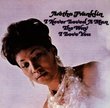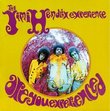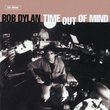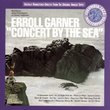| All Artists: Dusty Springfield Title: Dusty in Memphis Members Wishing: 6 Total Copies: 0 Label: Rhino / Wea Release Date: 8/18/1992 Genres: Pop, R&B, Rock Styles: Oldies, Soul Number of Discs: 1 SwapaCD Credits: 1 UPC: 081227103521 |
Search - Dusty Springfield :: Dusty in Memphis
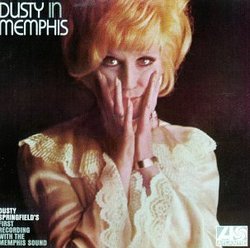 | Dusty Springfield Dusty in Memphis Genres: Pop, R&B, Rock
Dusty Springfield never claimed to be a soul singer, but Dusty in Memphis effects a unique and deeply moving synthesis of her brand of stylish pop and the southern R&B of the late '60s. Her soft tones and hushed, co... more » |
Larger Image |
CD DetailsSynopsis
Amazon.com Dusty Springfield never claimed to be a soul singer, but Dusty in Memphis effects a unique and deeply moving synthesis of her brand of stylish pop and the southern R&B of the late '60s. Her soft tones and hushed, confessional readings make for definitive versions of everything from "Son of a Preacher Man" (a later version by Aretha Franklin is good, but less thrillingly sensual than this one) to Randy Newman's ballads "I Don't Want to Hear It Anymore" and "Just One Smile" to a swirling take on "The Windmills of Your Mind." The soul obscurity "Breakfast in Bed" even gives a knowing spin to a line from an earlier Dusty classic: "You don't have to say you love me." --Rickey Wright Similar CDs
Similarly Requested CDs
|
CD Reviews"the best white soul album of all time" jab@emirates.net.ae (John Anthony B | Abu Dhabi, United Arab Emirates | 12/30/1998 (5 out of 5 stars) "A quote from the Guinness Encyclopedia of Popular Music:"Dusty In Memphis...the best white soul album of all time." I couldn't have put it better myself!" Dusty Springfield proves in "Memphis" that she has soul Lawrance M. Bernabo | The Zenith City, Duluth, Minnesota | 01/24/2005 (5 out of 5 stars) "Does it make sense that the finest white soul singer of the 20th century was a pop singer from England? Certainly, when you acknowledge that irony is the master trope of the universe, which also comes into play when you understand that Dusty Springfield (born Mary Isabel Catherine Bernadette O'Brien) never sang a note in Tennessee when "Dusty in Memphis" was recorded. It seems the singer was so intimidated by the prospect of recording with the musicians who had made such great music with Aretha Franklin and Otis Redding that she ended up dubbing all of her vocals in New York City. But it should also be remembered that in 1965 it was Springfield who hosted a television special on "The Sound of Motown" in England. By 1969 Springfield had already enjoyed her greatest chart success with the singles "Wishin' and Hopin'" (#6 in 1964) and "You Don't Have to Say You Love Me" (#4 in 1966). But after the Summer of Love and the release of "Sgt. Pepper," female vocalists were no longer being taken seriously. Springfield had signed with Atlantic and journeyed to Memphis to make this album with producers Jerry Wexler, Tom Dowd, and Arif Mardin. "Dusty in Springfield" blends pop and soul perfectly, but for some reason in 1969 the fact that this was a classic album, representing a diva in top form, was lost on everybody. "Don't Forget About Me," a Gerry Goffin-Carole King song, made it to #64 on the singles chart, while the classic "Son-Of-A Preacher Man" only made it to #10. The final single from the ablum, "The Windmills of Your Mind" topped out at #31. But another Goffin-King song, "No Easy Way Down," is a classic torch song for which Springfield offers the definitive version. As long as we are talking Brill Building veterans add Barry Mann/Cynthia Weil on "Just a Little Lovin.'" But the album also contains songs by Randy Newman ("I Don't Want to Hear it Anymore" and "Just One Smile") and Burt Bacharach & Hal David ("In the Land of Make Believe"). The constant is Springfield's husky and sultry voice, which is why you have to own this album even if you already have a Dusty Springfield hits collection. "Dusty in Memphis" sold less than 500,000 copies and only made it to #99 on the Billboard album chart. But "Son of a Preacher Man" and "Rolling Stone" magazine named "Dusty in Memphis" the 89th greatest album of all time (right between Johnny Cash's "At Folsom Prison" and Stevie Wonder's "Talking Book"). This remastered CD has a trio of bonus tracks consisting of "Willie & Laura Mae Jones" (#78 in 1969), "That Old Sweet Roll (Hi-De-Ho)," and an unreleased version of "What Do You Do When Love Dies," which was an interesting attempt to turn Springfield into a rock singer. But despite its lack of commercial success, "Dusty in Memphis" proved exactly what was Springfield's forte as a vocalist. The final irony is Dusty Springfield died in 1999 just ten days before she was inducted into the Rock and Roll Hall of Fame." The White Diamond Gary F. Taylor | Biloxi, MS USA | 01/27/2006 (5 out of 5 stars) "Dusty Springfield is easily among the most overlooked vocal masters of the 20th Century. It is difficult to say why; her voice was a lavish instrument of unique texture, her artistry ample to equal that of Garland, Piaf, Holiday and similarly celebrated women. If there is any flaw in Springfield's work it is the material itself, which is not always first rate--but which her voice nonetheless transforms from lead into gold.
Material is certainly no issue on DUSTY IN MEMPHIS, a recording which was a critical darling and commercial failure in 1969. Every song is first rate with a distinctly adult sensibility, and Dusty Springfield wraps her voice around each one with tremendous power and sexy sizzle, transitioning with remarkable ease between the soul-inflected "Son of a Preacher Man" and the night club-ish "Windmills of You Mind," to name but two cuts from this stunning set. From the meticulously crafted horn sections to the faintest tap of drums, everything about this recording is sheer perfection. Springfield was a glitchy personality who was given to emotional extremes, but instead of exacting a toll on her voice this seems to have enhanced it. There is a knowledge in each vocal tone that ranges from the sexy yet somehow mocking "Just a Little Lovin'" to the emotionally devastating "No Easy Way Down" that sets her apart from her contemporaries and indeed from most of the great women of song of her century. This is the timeless essence of woman, laid bare without any tricks or games, authoritative, unpretentious, absolutely honest, not simply of a single era or musical style but for ever and all time. A great deal has been written about Springfield over the years, and certainly she fueled the fire with her often jaw-dropping interviews and headline-making escapades. Over the years she has developed a cult of personality that sometimes makes it hard to see her for what she was: a white diamond that showed to almost inhuman perfection regardless of setting. Forget about all you've ever read, all you've ever heard--just draw the curtains, silence the telephone, dim the lights--place DUSTY IN MEMPHIS on the stereo--and surrender. GFT, Amazon Reviewer" |

 Track Listings (14) - Disc #1
Track Listings (14) - Disc #1

